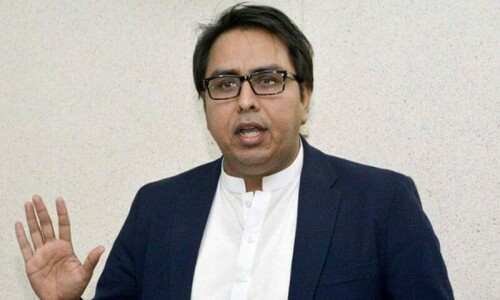
DAMASCUS: Damascus will respond to any initiative that could solve Syria's 21-month conflict through talks, its premier said on Monday, after peace envoy Lakhdar Brahimi announced he had a plan to end the bloodshed.
“The government is working to support the national reconciliation project and will respond to any regional or international initiative that would solve the current crisis through dialogue and peaceful means and prevent foreign intervention in Syria's internal affairs,” Prime Minister Wael al-Halaqi told parliament.
Halaqi emphasised the revolt against the regime of President Bashar al-Assad, which has left an estimated 45,000 people dead, must be resolved only by the Syrian people, “without external pressures or decrees”.
The country, he said, was “moving toward a historic moment when it will declare victory over its enemies, with the goal of positioning Syria to build a new world order that promotes national sovereignty and the concept of international law”.
But regime officials and state media have long categorised activists and armed insurgents alike, as enemies or “terrorists” funded by Gulf rivals Qatar and Saudi Arabia, former ally Turkey and the West.
Brahimi said Sunday he had crafted a ceasefire plan “that could be adopted by the international community,” but that it was rejected by the opposition, which insists on Assad's departure before any dialogue can take place.
The uprising began in March 2011 with peaceful protests inspired by the Arab Spring, but steadily morphed into an armed rebellion following a brutal government crackdown on dissent.
Even though Syrian rebels now hold vast swathes of territory and have struck the heart of Damascus, the regime has so far stood firm despite Western predictions of its imminent fall.














































